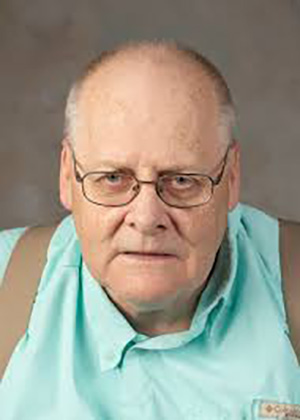By GREG MARKLEY
OPINION –
The first debates of the 2016 presidential campaign were held on August 6, 2015. They foreshadowed that debates would become less serious. From rude to boorish, participants engaged in private arguments and public actions unusual for wannabee presidents. This hugely popular debate was no cousin to the sterling Lincoln-Douglas debates of 1858 in Illinois for the U.S. Senate.
Vice President Richard Nixon ascribed his loss of the 1960 debate as due to Kennedy being more attractive and charismatic on TV. There were no presidential debates, not one to televise, from 1964-1976. The idea was rejected by Nixon in 1968 and 1972 because of his bad memories from the first time.
Also, in 1964, LBJ realized he was so far ahead in polling against Sen. Barry Goldwater that debates could only cause trouble. In July 2018, Gov. Ivey had only been governor for 15 months, after her predecessor resigned. She quite likely had a full plate to deal with as her Democratic opponent asked for a debate.
“Walt Maddox refuses to say if he supports Brett Kavanaugh for the Supreme Court, it’s impossible to get a straight answer from him on gun rights and he’s all over the map on abortion,” Ivey said. “It seems the person Walt Maddox should be debating is himself.” Maddox has been mayor of Tuscaloosa since 2005.
Again this year, Ivey has not agreed to debate anyone. On May 24, she has eight Republican challengers. Within her party, in a Real Clear Politics poll, Ivey is at 48 %, followed by businessman Tim James at 11 percent. Should Ivey debate this fall, against her unnamed Democratic opponent?
I address the debate issue on three levels. First, as a citizen, I know that incumbents must be available. But does that have to be in a formal debate? Ivey is certainly not hiding from voters. If you could see her daily schedule, you would find she puts her government events (meetings, openings of new plants, etc.) first. The campaign comes second as it should be.
Second, if I were her or any popular candidate’s campaign manager, I would be careful about any debates. This is because the people leading in their races can only be diminished in a debate, say with several opponents. And with all of us, there is a chance we make a big slip-up; that might even move a challenger within striking distance of winning.
“Our contemporary politicians, who found it necessary to speak to us as sixth and seventh graders (in debates), compared unfavorably with Presidents Kennedy and Nixon, both of whom spoke in a vocabulary appropriate for tenth graders,” wrote Diane Ravitch in the Hoover Daily Report (2001). “And they, in turn, looked sophomoric when compared to Abraham Lincoln and Stephen Douglas, whose scores, respectively, were 11.2 and 12.0.”
Third point on debates is that I am a strong critic of what presidential debates and even some governor or U.S. senator debates have become. Many are shallow, ultra-ideological, vulgar and redundant. This is especially true where a TV ‘personality” cannot maintain order and is not well-respected.
Candidates spend countless hours over weeks to study material, especially so that “sound bites” can be deployed in a way that viewers can’t determine if the candidate is witty and spontaneous. For instance, when Reagan helped extinguish the concerns over his age by saying to VP Mondale “I will not make age an issue of this campaign. I am not going to exploit for political purposes my opponent’s youth and inexperience.”
After the first debate, Reagan was showing his age, as the oldest president (age 73) so his “spin doctors” sought a way for him to eliminate those suspicions about his mental capacity slipping. And they found it. Spin doctors are paid loyalists and not impartial analysts of a debate. To wit, if a candidate mistakes Iraq for Iran on a map, a spin doctor might say: “Yes, he did say that, but he didn’t hear the question because a truck outside the hall fired just then.”
In 1987, judge Robert Bork was rejected for the U.S. Supreme Court, being considered a conservative extremist. But after the Senate’s rejection, he spent 25 years as an academic and public intellectual. On C-SPAN Booknotes, he spoke of a culture “lobotomized” by TV.
“It means people aren’t reading or thinking,” Bork explained. “They’re increasingly listening to slogans and sound bites. Probably the nature of TV entertainment is not only vulgar… but has less and less dramatic content of any worth and less and less intellectual content.”
We know times are getting crazy when presidential debates are watched for their stinging insults. Are those required for future presidents? I rather doubt it. No wonder Ivey has decided not to participate in any debates, going back to 2018. But she remains highly visible and available for the press, and primarily, for the citizens of Alabama.
Greg Markley first moved to Lee County in 1996. He has Masters’ in education and history. He taught politics as an adjunct in Georgia and Alabama. An award-winning writer in the Army and civilian life, he has contributed to the Observer for 13 years. gm.markley@charter.net


